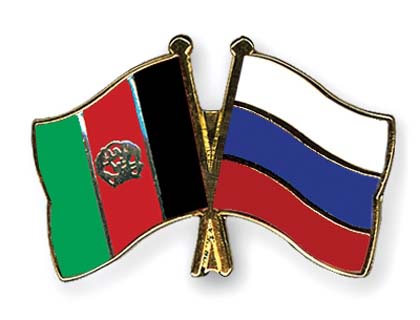MOSCOW - Russia has no plan to send troops to Afghanistan after the NATO-led International Security Assistance Force (ISAF) ended its combat mission there, a senior diplomat said Monday.
On Sunday, the ISAF formally ended its 13-year-old combat mission in Afghanistan. Some 13,000 troops, including 10,800 Americans, will stay in Afghanistan in 2015 to play a supporting role.
"By no means Russia or the Collective Security Treaty Organization (CSTO) are going to send troops to Afghanistan," Russian special presidential envoy to Afghanistan, Zamir Kabulov, told Xinhua in an exclusive interview.
"Russia needs to think about its own security in the first place and see how the events unfold," he said.
Moscow has no plan to redeploy its border troops along the Afghan-Tajik borders, he said, adding that Russia could assist Dushanbe in military-technical terms.
Noting that Russia has strived to deepen cooperation with its allies along Afghanistan's perimeter, the diplomat said that Moscow and Kabul have been working on an agreement on military-technical cooperation.
Kabulov warned that following the end of the ISAF's mission, armed groups of extremists, including the Islamic State, could spill into such Central Asian countries as Tajikistan, Uzbekistan and Turkmenistan in early 2015.
He estimated that those groups comprise up to 7,500 people, with most of them being natives of those Central Asian countries.
The Taliban could also increase its threats to Kabul in 2015, he said.
Kabulov said despite the Afghanistan-originated security threats, including drug trafficking, could grow, the CSTO has no mandate to deal with Afghanistan's internal problems.
"The CSTO could only provide security to its members, protect its outer borders," Kabulov said, adding that Russia's 201 military base in Tajikistan will play a big role in Central Asian military security.
Insisting that his estimations were "not pessimistic but realistically based on the reliable information," the diplomat said the timing for the ISAF withdrawal was "extremely inconvenient" because the country has not formed a cabinet while local political elites were divided over the recent presidential elections' results.
He also accused the Western coalition of making a "major mistake" that nothing substantial has been done to bolster Afghanistan's economy over the past 13 years.
The Shanghai Cooperation Organization (SCO), he said, will have to pay attention to the situation in Afghanistan, which has an observer's status in the organization.
Since the SCO has no military structure, its role could be assisting the Afghan government economically, he said. (Xinhua)

